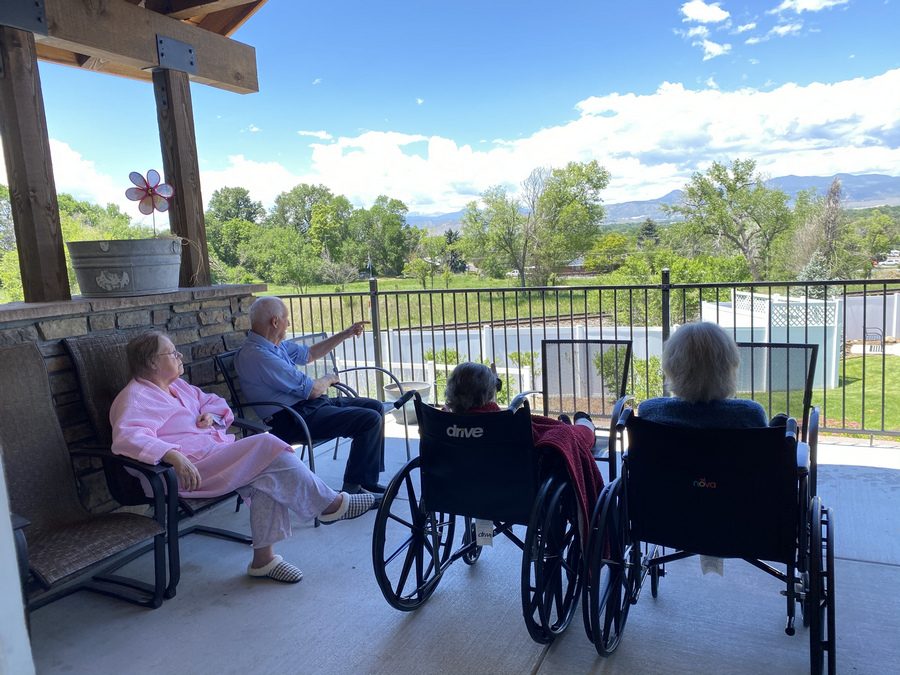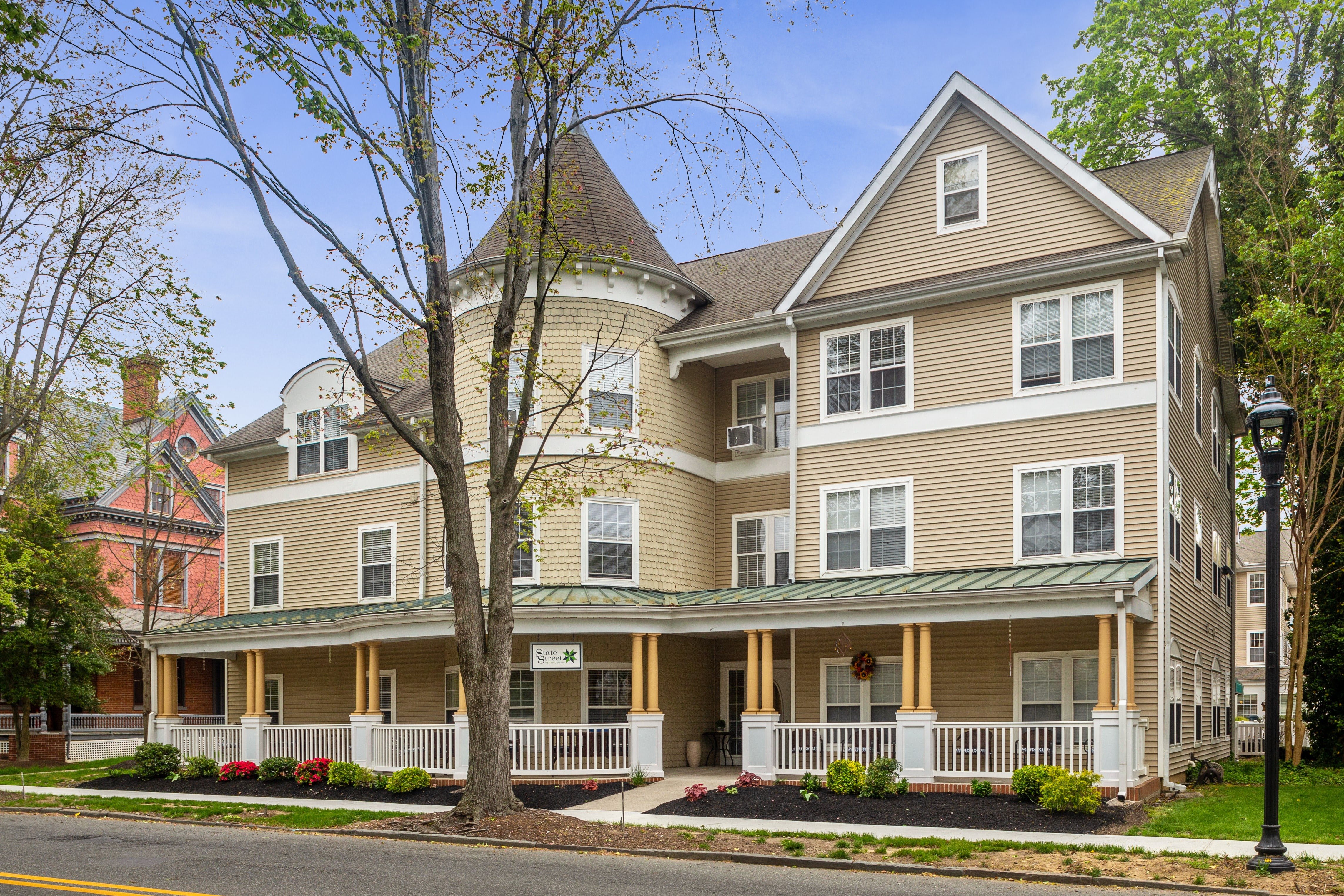Top Reasons to Choose Personalized Memory Care Over Generic Services
Top Reasons to Choose Personalized Memory Care Over Generic Services
Blog Article
All About Memory Treatment Solutions: Why Little Memory Treatment Residences Are a Great Option
Memory care solutions play a necessary duty in sustaining people with Alzheimer's and mental deterioration. Little memory care homes stand out for their customized approach and intimate setting. With reduced staff-to-resident ratios, these homes promote stronger connections and tailored treatment. Homeowners take advantage of boosted social communications and a secure atmosphere. As households explore choices, understanding the unique benefits of tiny memory treatment homes comes to be vital. What aspects should be thought about when choosing the appropriate home?
Understanding Memory Treatment Solutions
While many might recognize with general senior treatment options, comprehending memory treatment services is essential for households encountering the difficulties of cognitive decline. Memory treatment especially accommodates individuals with conditions such as Alzheimer's disease and various other kinds of mental deterioration. These solutions provide an organized environment that concentrates on enhancing the top quality of life for residents with specialized care and support.Memory care facilities are made to ensure security and protection, commonly featuring protected atmospheres to stop wandering. Trained team participants are available all the time to assist with daily activities, drug monitoring, and personal care. Additionally, memory treatment programs typically consist of cognitive excitement activities, tailored to engage homeowners and advertise psychological well-being. Family members can profit from understanding these services, as they make it possible for notified decisions regarding their enjoyed ones' care, guaranteeing that their specific needs and preferences are attended to in a thoughtful and helpful way.
The Benefits of Tiny Memory Treatment Houses
Small memory treatment homes use unique benefits that can greatly boost the top quality of life for residents with cognitive problems. One substantial benefit is the intimate setting, which permits personalized communications among staff and residents. This smaller sized setting cultivates meaningful connections, reducing feelings of seclusion and anxiety commonly experienced by people with memory issues.Additionally, the lower staff-to-resident ratio in tiny memory treatment homes allows caregivers to supply more alert guidance and support. This method not just boosts security but additionally advertises a complacency for the residents.Moreover, tiny memory treatment homes can adapt quickly to the special needs and preferences of each resident, allowing for a more homelike atmosphere. Such a setting can encourage social involvement and participation in activities, inevitably improving the everyday experiences of those living with cognitive disabilities.
Personalized Care Program for Citizens
Customized treatment plans are essential in memory care homes, as they deal with the special demands and choices of each citizen. These strategies start with complete evaluations carried out by experienced professionals, that review cognitive capacities, case history, and individual rate of interests. This customized technique guarantees that care is not just efficient however additionally respectful of each individual's self-respect and autonomy.Moreover, customized treatment strategies are adaptable, permitting changes as locals' demands evolve gradually. This versatility cultivates a complacency and knowledge, which is important for people dealing with memory obstacles. Caregivers are trained to carry out these plans continually, providing support that straightens with the residents' routines and preferences.Ultimately, personalized care strategies improve the quality of life for citizens by promoting well-being, self-reliance, and involvement, making them an essential element of memory treatment services in tiny memory treatment homes.
Creating a Home-Like Atmosphere
Creating a home-like setting is crucial for promoting convenience and familiarity in memory care setups, as it greatly affects citizens' emotional health. Tiny memory care homes commonly prioritize individualized touches, such as warm shade combinations, family pictures, and familiar furnishings setups, which assist residents really feel more comfortable. Integrating elements evocative a conventional home, like cozy living spaces and common locations, motivates a sense of belonging.Moreover, utilizing all-natural light and outdoor spaces can improve the environment, promoting relaxation and peace. Team member play a significant duty in preserving this atmosphere by involving with homeowners in a compassionate way, treating them like household. Regular activities, such as food preparation or horticulture, can additionally contribute to a home-like feel, supplying possibilities for homeowners to take part in significant experiences. In general, creating a supporting environment supports cognitive function and psychological security, making it an important facet of memory treatment services.
Boosted Social Communication and Area
Enhanced social communication and community are crucial components of memory care services. By cultivating customized social engagement and creating a family-like ambience, these services promote purposeful links amongst locals. Group occasions and activities even more urge participation, aiding people really feel a lot more included and supported.
Personalized Social Interaction
While social communication is vital for general wellness, lots of individuals with memory disabilities frequently have a hard time to involve meaningfully with others. Individualized social interaction in memory treatment homes addresses this challenge by developing customized activities that accommodate citizens' one-of-a-kind passions and abilities. By concentrating on individual preferences, caregivers can promote links that resonate deeply with each individual. Tasks such as art therapy, music sessions, and assisted conversations promote cognitive excitement and psychological expression. Furthermore, little team settings encourage sociability and permit more intimate interactions, boosting feelings of belonging. This strategy not only fights feelings of isolation but also empowers citizens to keep a sense of identity, inevitably adding to enhanced mental health and wellness and lifestyle.
Family-like Environment
In a memory care setup, promoting a family-like atmosphere substantially boosts social communication and constructs a feeling of area amongst homeowners. Smaller memory treatment homes commonly prioritize intimate settings, permitting residents to create closer connections with each other and personnel. This nurturing environment advertises depend on, which is vital for individuals with memory problems. Residents are most likely to engage in discussions and share experiences, creating a helpful network that alleviates feelings of isolation. The familiarity of common rooms and routines adds to a feeling of belonging, additionally urging social communication (personalized memory care). In such settings, emotional bonds thrive, resulting in boosted general health and a higher top quality of life for residents as they navigate their everyday experiences together
Group Activities and Events

Safety and Security Functions in Small Houses
Many small homes designed for memory treatment integrate necessary security and safety and security features to ensure the wellness of locals. These homes frequently utilize safe access and exit points to avoid roaming, an usual worry among individuals with memory impairments. Furthermore, surveillance systems and alarm system mechanisms boost tracking, making sure that team can promptly react to any kind of unusual activities.Interior designs are tailored for safety, with decreased risks such as clutter-free pathways and sharp corners. Handrails and non-slip flooring are generally installed to reduce the risk of drops. Staff members are educated in emergency procedures, ensuring they are planned for different situations.Moreover, personalized treatment plans might include analysis of individual safety and security requirements, offering tailored options for each resident. Generally, these visit our website security and security features create a caring atmosphere where locals can prosper while maintaining their dignity and freedom.
Exactly how to Select the Right Memory Care Home
How can households ensure they pick one of the most ideal memory treatment home for their liked ones? The choice calls for careful consideration of a number of variables. Family members ought to evaluate the center's team qualifications and training, guaranteeing that caregivers are experienced in handling memory-related problems. Next off, it's essential to analyze the home's setting, concentrating on security functions and whether it promotes a link sense of community and belonging. Visiting the center can supply insight into day-to-day activities and the social ambience, which are important for mental stimulation and psychological health. In addition, family members must ask about the care plans provided, ensuring they are customized to private requirements. Lastly, taking into consideration the home's location and accessibility for family members sees can contribute to a smoother shift. By attending to these elements, families can make an enlightened choice that prioritizes their enjoyed one's convenience and quality of life in a memory treatment setup.
Often Asked Inquiries
What Credentials Should Personnel Members in Memory Treatment Houses Have?
Team participants in memory care homes should have pertinent qualifications, experience in dementia treatment, strong interaction skills, and compassion. Continuous training in behavior management and healing treatments boosts their capacity to sustain citizens successfully.
Exactly How Do Memory Care Solutions Differ From Conventional Assisted Living?
Memory treatment services concentrate specifically on people with memory disabilities, offering customized assistance and organized environments. In comparison, conventional assisted living uses basic assistance with everyday tasks, doing not have the tailored approach needed for those with cognitive difficulties.
What Kinds of Activities Are Provided in Memory Treatment Residences?
Memory care homes normally supply a variety of tasks made to involve residents. Typical options consist of art treatment, music sessions, cognitive video games, physical exercises, gardening, and get-togethers, all focused on improving well-being and cognitive function.
Can Citizens Bring Their Own Personal Belongings to Memory Care Houses?
Residents can usually bring their very own items to memory care homes, enabling them to individualize their home - personalized memory care. This method assists produce an acquainted atmosphere, promoting comfort and a sense of identity for the people

Just How Are Relative Involved in the Treatment Refine?
Household participants play a necessary role in the care process, commonly participating in decision-making, attending treatment conferences, and providing psychological support. Their participation fosters a joint atmosphere, boosting the local's total health and lifestyle. While many might be acquainted with general elderly treatment alternatives, comprehending memory treatment services is essential for families encountering the challenges of cognitive decrease. These solutions offer a structured atmosphere that concentrates on boosting the high quality of life for locals with specialized care and support.Memory treatment centers are developed to guarantee safety and security and protection, often including protected environments to stop wandering. Customized care plans are important in memory care homes, as they cater to Homepage the unique needs and preferences of each resident. Staff members in memory care homes should possess relevant accreditations, experience in mental deterioration treatment, solid communication abilities, and concern. Memory treatment services focus particularly on people with memory disabilities, supplying specific assistance and organized settings.
Report this page